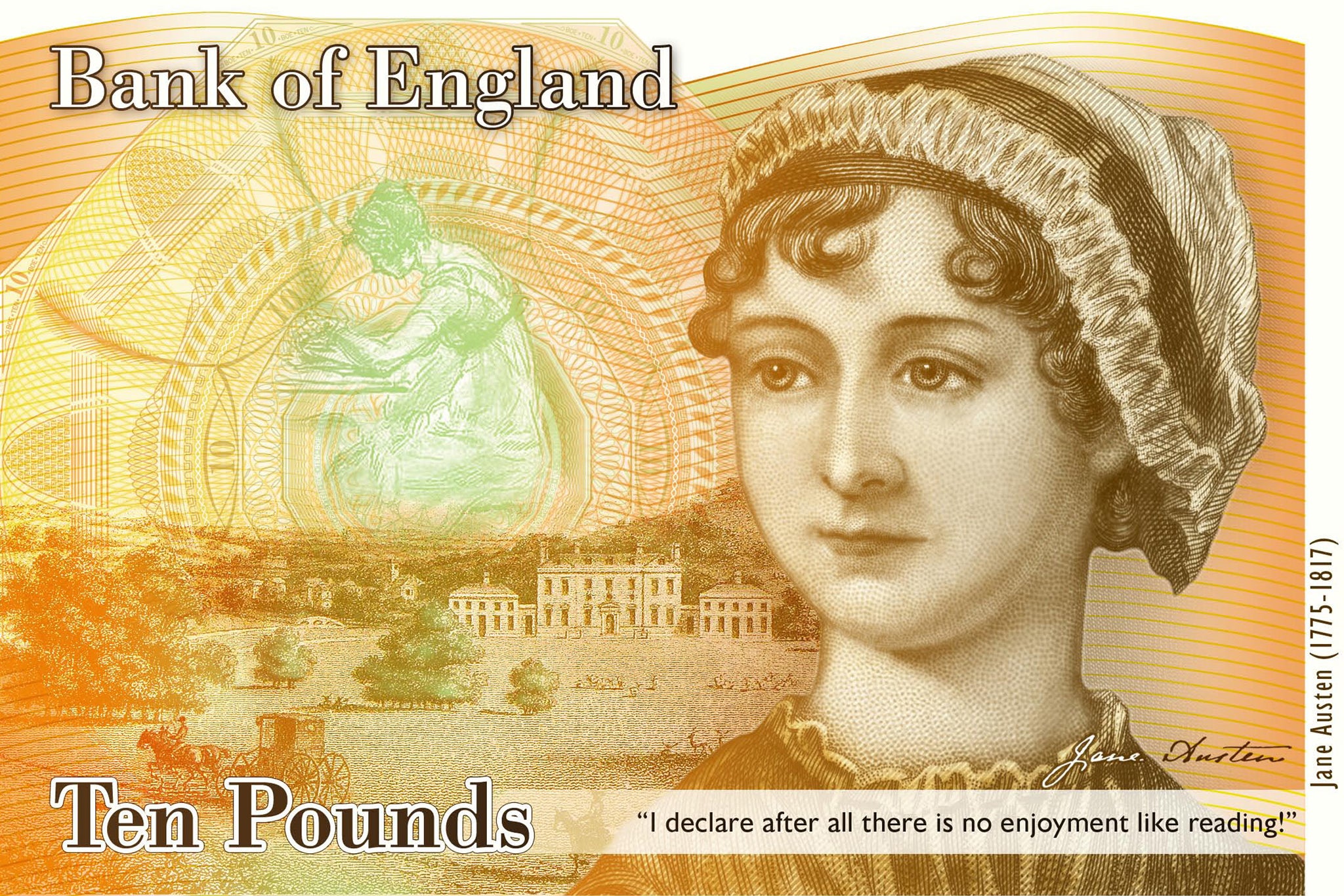If you thought it was trivial to care about putting a woman on a bank note, #feministtenner will prove you wrong
The campaign faced opposition from its inception, and even more so when it succeeded

Your support helps us to tell the story
From reproductive rights to climate change to Big Tech, The Independent is on the ground when the story is developing. Whether it's investigating the financials of Elon Musk's pro-Trump PAC or producing our latest documentary, 'The A Word', which shines a light on the American women fighting for reproductive rights, we know how important it is to parse out the facts from the messaging.
At such a critical moment in US history, we need reporters on the ground. Your donation allows us to keep sending journalists to speak to both sides of the story.
The Independent is trusted by Americans across the entire political spectrum. And unlike many other quality news outlets, we choose not to lock Americans out of our reporting and analysis with paywalls. We believe quality journalism should be available to everyone, paid for by those who can afford it.
Your support makes all the difference.I was pleasantly surprised by something that happened on Twitter today. Not something you read every day, is it? But hear me out.
Today, activist Caroline Criado-Perez, who campaigned for the Bank of England to issue a note featuring a woman, started promoting a hashtag called #feministtenner. The idea came from tweeter Lynn Schreiber, who pledged to give her first newly-issued £10 note (which will now feature Jane Austen) to the women’s charity Refuge. She did so in response to some earlier tweets from people promising to deface or burn the new note, presumably to express their disapproval of Caroline’s campaign.
The hostility was no new development – the campaign faced opposition from the most unlikely quarters from its inception. For many left activists, it was too much of a bow to capitalism: why collaborate with it by acknowledging that money is important? Some feminists thought it was just pointless: who cares about stupid banknotes when women are being raped and murdered all over the world? For others, it was a bourgeois issue, a privileged white women's crusade that re-enacted the marginalization of minority voices. Critics with other views popped up here and there, but the one accusation all of them had in common was: this campaign is frivolous, trivial. Why do it? Even if it succeeds, it will have accomplished nothing of value.
Well, the campaign did succeed, as was by no means inevitable. It’s easy to forget what an achievement that was: to my knowledge, no single campaigner has ever taken on an institution as conservative and unaccountable as the Bank of England, let alone won. When the Bank announced that Jane Austen will feature on the new £10 note, Twitter erupted – but not in jubilation; in fury. The internet seethed with the most violent, persistent, ugly and explicit set of attacks on a single woman that were seen since media critic Anita Sarkeesian was subject to a similar barrage for wanting to make a program critiquing the representation of women in computer games (another 'frivolous' topic).
So when something many dismissed as pointless and marginal attracts a volcanic eruption of anger, what does it mean? It means it mattered to people. Maybe not to you, but it mattered to those targeted by the campaign – sexist men, sexist power structures, sexist institutions. Computer games, banknotes, Page 3, and other issues that some think of as trivial, turn out to be very important to a lot of sexist men. Men who are prepared to break the law by stalking, harassing and threatening women, even at the risk of police action being taken against them.
Today we saw how one such success can be leveraged by people bent on action and not on carping. The #feministtenner hashtag attracted hundreds of tweets within its first couple of hours. People fell over themselves to pledge their first Jane Austen note to a slew of feminist charities. Even better, the charities themselves jumped in to remind people that donations are needed now, today – and donations duly started being pledged. So this trivial, frivolous, nonsensical campaign may yet prove to have stuck a bit of a plaster on the wounds inflicted on women by a systematic policy attack on their incomes, livelihoods, services and safety.
Well fancy that.
If you would like to pledge your first feminist £10 to a women’s charity, or to learn more about the causes, here are some ideas:
Join our commenting forum
Join thought-provoking conversations, follow other Independent readers and see their replies
Comments